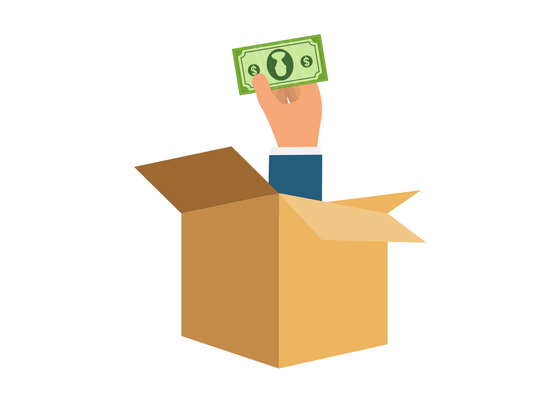Editor’s Note: The following is a guest post by Martin Eisikovic, CEO of emerging New Jersey-based company Opened Box Returns. As the name suggests, his company specializes in converting losses into revenue by reselling returned products.
Looking for ways to minimize your losses and pump up your sales? There may be some untapped potential for profit in your Amazon customer returns.
Let’s talk about that one corner of your warehouse that keeps growing and growing, spilling over until you’re literally swamped with work. The Amazon customer returns corner. It’s where you’ve piled up all the inventory your customers decided to send back.
What do customer returns mean for business? It’s the stuff other customers are missing out on, and that you’re not making any money on. Yet aside from “dead inventory”, that corner of your warehouse where you store returned products is also basically “dead space”. So, not only are you not making money selling returned products, but you’re also losing money on storage.
So, what can you do about it?
Don’t procrastinate
Customer returns are a percentage of sales, so the more you sell the more returns you get. You can’t live with them, and you can’t live without them, can you?
But if you’re like most other sellers, you’ll try to put off dealing with them for as long as you can. And this “we’ll get to it later” attitude will only make your pile of Amazon customer returns grow bigger and harder to tackle.
Delegate
I would suggest to appoint one person in charge of them. This employee should be responsible for going through all the returns you received on a weekly/bi-weekly basis. If they do it consistently, then it shouldn’t be a full-time position, because the volume of your returns wouldn’t get out of hand.
Remove signs of previous sale
For inventory that is going back to FBA, make sure you remove the LPN stickers or any other label Amazon marked it with. For many stickers, the easiest way to do this is to use a heat gun because it only takes a few seconds, and it doesn’t leave any markings or residue on the item.
For FBM items, it may not be necessary to remove the stickers, since most customers don’t know what they represent. Still, it’s better to err on the side of caution.
Check the condition
If an item is returned in brand new condition, then it should be sold on Amazon as new. However, if it’s used, it may need to be tested and graded. This is the most time-consuming part of the returns process.
Amazon condition guidelines clearly state that products sold as ‘new’ must have their original protective wrapping (like shrink wrap) intact. If yours came without protective wrapping and are intact, they may pass as brand new.
Decide where to sell
When products are returned to you intact because the customers changed their mind, the easiest thing for you to do is to relist on Amazon. However, you could consider selling an item on websites other than Amazon when:
- The product may appeal to buyers on another website, such as eBay, especially if it’s in used condition.
- You don’t mind selling your product for less, allowing buyers to bid on your item or to negotiate with you.
- You’d rather deal with buyers’ complaints directly, rather than through Amazon.
- The product page on Amazon is inaccurate, and you don’t expect it to be corrected in time for listing.
- You’re afraid dissatisfied customers would leave negative feedback or file an A-Z Claim on Amazon.
- Your product doesn’t qualify as ‘new’, and the category it’s in only allows you to sell new items, like health and beauty, baby products or watches on Amazon.
Consider the challenges
If you sell mostly through Amazon FBA and you want to switch to other websites, you’ll need to store your products and ship them directly to customers. You’ll also need to go through an entirely different listing process than what you were used to on Amazon.
To maximize profits, you’ll need to make your listings appealing to your new customers and come up higher in search result lists. This will probably entail creating new product images and descriptions with appropriate keywords.
With all the time, effort and resources that go into dealing with returned products, many online retailers choose to outsource their Amazon customer returns to companies like Opened Box Returns that specialize in reverse logistics. If you’d like to know more, please get in touch via email at info@openedboxreturns.com.
Disclaimer: The opinions and recommendations expressed in our guest posts are those of the authors, and do not necessarily reflect the views of SellerEngine or its employees.
